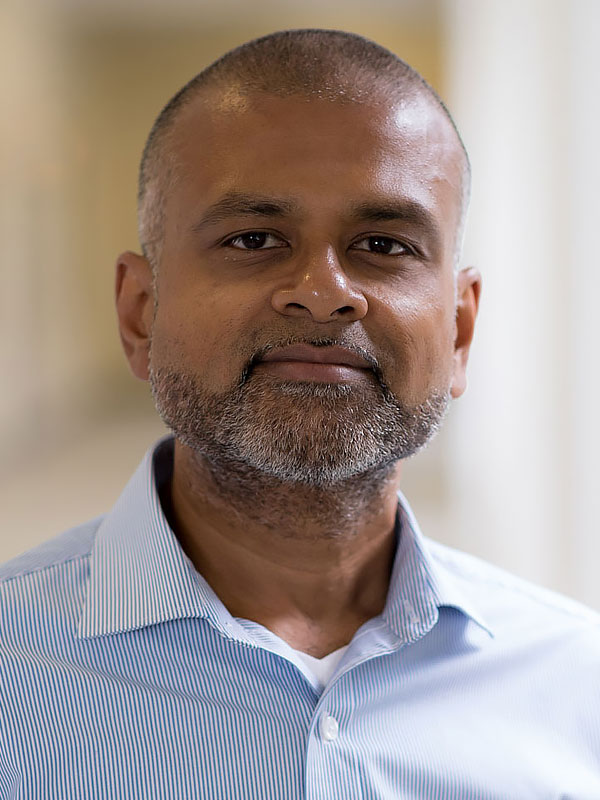Einstein Experts for Media
Search Results
You searched for "Neurobiology of obesity and diabetes"
4 results found
Kartik Chandran, Ph.D.

Professor, Microbiology & Immunology
Harold and Muriel Block Faculty Scholar in Virology
COVID-19, Ebola, and emerging virusesAntibody-based therapiesAnti-viral therapeuticsVirus-host interactions
A recognized expert on emerging viruses, Dr. Chandran studies how viruses infect cells, and his research seeks to translate this knowledge into new antibody-based therapies. In 2020, Dr. Chandran helped lead Einstein’s research on COVID-19: Within weeks of the global outbreak, his laboratory created a “surrogate” coronavirus that allows scientists at Einstein and elsewhere to more safely study the virus. He also helped develop an antibody test for SARS-CoV-2 that is used clinically at Montefiore Health System and by researchers leading a convalescent plasma clinical trial. read more...
Jill P. Crandall, M.D.

Professor, Department of Medicine (Endocrinology)
Jacob A. and Jeanne E. Barkey Chair in Medicine
Chief, Division of Endocrinology
Director, Fleischer Institute for Diabetes and Metabolism
DiabetesType 2 diabetesDiabetes prevention
Clinical TrialsPrediabetesResveratrol
An expert in diabetes prevention, Dr. Crandall is director of the Diabetes Clinical Trials Unit at Einstein and Montefiore and a principal investigator for several NIH-sponsored clinical trials, including the Diabetes Prevention Program Outcome Study (for which she holds several national leadership positions, including Executive Committee membership), Glycemia Reduction Approaches in Diabetes (GRADE) and the PERL (Preventing Early Renal Loss) study. read more...
Liise-anne Pirofski, M.D.

Professor, Medicine (Infectious Diseases), Einstein
Professor, Microbiology & Immunology, Einstein
Selma and Dr. Jacques Mitrani Chair in Biomedical Research, Einstein
Chief, Infectious Diseases, Department of Medicine, Einstein and Montefiore Health System
Infectious diseasesConvalescent plasmaCOVID-19PneumoniaImmunologyBacterial infections
Gary J. Schwartz, Ph.D.

Professor, Medicine (Endocrinology)
Professor, Dominick P. Purpura Department of Neuroscience
Neurobiology of obesity and diabetesGastric-bypass surgery
Dr. Schwartz studies how the gut and the brain act together to determine how much people eat. He has identified sites in the gastrointestinal tract and brain that detect nutrients and has discovered how these regions are linked to food intake, obesity and diabetes. He also studies gastric-bypass surgery and the key neural and hormonal mechanisms responsible for the significant and long-lasting improvements in body weight, food intake and diabetes following the procedure. read more...

Tablet Blog